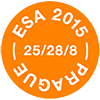Differences, inequalities and sociological imagination
A profound challenge that the social sciences, and sociology in particular, are now called upon to confront has to do with the depth and extraordinary acceleration of global processes of social and cultural change. Today's byword 'globalisation' only partially captures the full significance of these processes. Sociological knowledge therefore encounters a limitation: it is easier to see what is disappearing than what is coming into being. Yet this limitation can be overturned and become a resource: a stimulus to intensify our theoretical and empirical exploration of the world around us by relating everyday life to history, connecting individual experiences to major issues of democracy and justice, and viewing the exercise of agency in the light of processes of domination. Sociological imagination is the tool that our discipline has honed over the decades to accomplish this.
But what are the major issues that the global sociological community now has the responsibility to tackle? First and foremost, they arise from the exponential increase in social inequalities, a process that the international economic crisis has exacerbated beyond measure. This situation threatens the very existence of democracy and calls for the construction of forms of social analysis which are strongly connected to the arena of public policy. Concurrently, these forms of analysis must also be capable of offering communities and individuals knowledge and insight that can help to stem the tide of fatalism and apathy.
Yet an analysis of how inequalities are produced and reinforced would be incomplete without reflection on differences. Recognising and acknowledging the multiple expressions of difference – such as gender, social class, age, ethnic background, religion, and sexual orientation... - are vital when it comes to gaining insight into the ‘multiple positioning’ that characterises contemporary individuals. And this entails rethinking the meaning of integration today.
The ESA’s next conference, in Prague from 25 to 28 August 2015, is an invitation to engage with these fields of inquiry. We live in an era in which new forms of domination call for a reframing of the questions sociology has tackled since it came into being. We need to work together to examine the intricate interweave of social, cultural, economic and political dynamics contained in the processes of change occurring in the twenty-first century. We need to renew our sociological imagination. The Prague conference aims to offer fertile terrain for this call to understanding and action.






